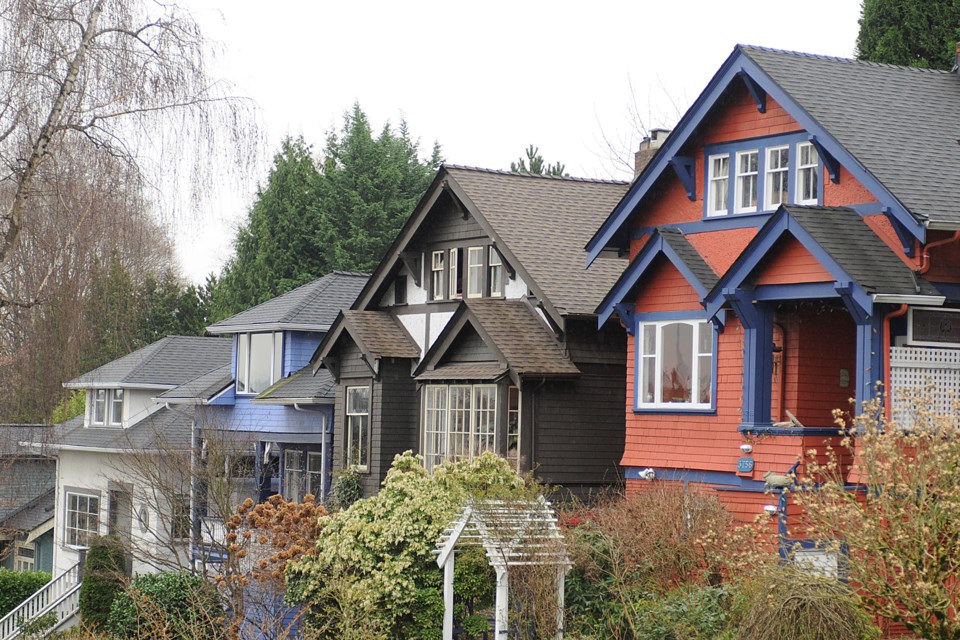This week, owners of more than 522,000 properties throughout Greater Â鶹´«Ă˝Ół»can expect to receive their 2018 assessment notices.
The new assessments can also be found on-line at bcassessment.ca. All you need do is type in your address or, for that matter, your neighbour’s, relative’s or ex-spouse’s address to see what their homes may be worth.
I say “may be worth” since many property values have changed since July 1, 2017 when valuations were carried out.
Unlike last year, when assessment increases of 30 to 50 per cent were typical for single-family homes in Vancouver, North and West Vancouver, Burnaby, Tri-Cities and New Westminster, and typical condominium increases throughout these areas were in the 15 to 30 per cent range, this year’s adjustments are generally much more modest.
According to BC Assessment, within Greater Â鶹´«Ă˝Ół»new single-family assessments ranged from a five per cent drop to a 15 per cent increase. Condominiums generally increased between five per cent and 35 per cent. In Vancouver, the overall increase was 5.63 per cent.
This still translated into an increase of more than $1,000 a day for many West Side Â鶹´«Ă˝Ół»homeowners.
Other property owners witnessed even more dramatic increases if their property was within a neighbourhood rezoned for higher density development or so designated in a community plan. Â鶹´«Ă˝Ół»examples include Grandview-Woodlands, Cambie Corridor and Marpole, to name just three.
It is important to remember that assessment increases do not automatically translate into property tax increases. Rather, changes in property tax are determined by the overall municipal tax increase — in Vancouver, council approved a last-minute 4.24 per cent increase — and a homeowner’s change in a property assessment compared to the municipal average.
As regular readers of this column are aware, many households who cannot afford to pay their taxes, or do not want to pay can defer payment.
While some may worry the city will struggle to provide services if taxes are deferred, they need not. The province pays the taxes on behalf of the property owner.
It is important to note this program is not means tested, although it should be. I defer my taxes every year since the interest rate charged is less than one per cent.
What is not generally known is that households facing dramatic tax increases due to Community Plan or zoning changes can not only defer their taxes, in many instances they often qualify for much lower taxes.
This is because Section 19(8) of the Assessment Act allows residential land to be assessed at less than market value where the owneroccupied the property as their principal residence continuously for 10 years effective Oct. 31 of the year preceding the tax year, and provided the property has redevelopment potential for a more valuable use than its current use.Â
In the case of some Marpole or Cambie Corridor bungalows, the reduced assessment and taxes may be less than half the assessed value and taxes of the property next door.
To qualify for this tax relief, the owner should submit a completed application form to BC Assessment each year by Nov. 30 to receive the benefit in the following assessment/taxation year.
If a property owner cannot, or did not apply by Nov. 30, they should contact their local BC Assessment area office, as applications received between Nov. 30 and the following March 15 may qualify for processing through the assessment review process.
Application forms and additional information on the special valuation treatment provided under section 19(8) may be obtained by calling BC Assessment at 1-866-825-8322.
For many reasons, I believe this is a very good provision of the Act. However, it may be time to introduce a similar provision for commercial properties.
Increasingly, due to redevelopment pressures, small, longstanding family-owned businesses are facing municipal property tax bills greater than the rent being charged by the landlords.
This is one of the reasons we are seeing an increased number of “for lease” signs in many of our favourite neighbourhood shopping areas. While the city does allow tax averaging and other measures to reduce the impact of higher taxes, more needs to be done.
But that’s another story for another day.



